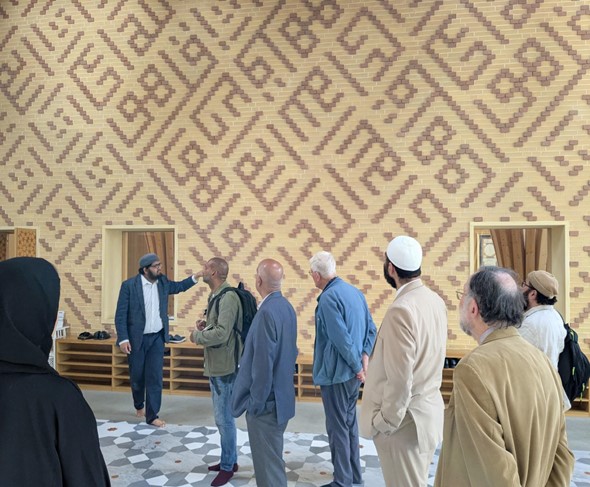Round Table with Cambridge Interfaith Programme
A group of seven from Birmingham – Adam Mosque (2), MECC (3) and Footsteps (2) – spent a day with the Cambridge Interfaith Programme. We began with an inspirational visit to the the Cambridge Central Mosque – a purpose built mosque with an advanced eco-design. This was followed by a ’round table’ meeting exploring the role of faith and theology in engaging and empowering communities who are widely under-represented in mainstream conversations around climate or alienated by the dominant narratives presented.
Read on for a summary of the key points discussed, and a full report can be downloaded below.
The round table began by discussing the place for economically-deprived communities and marginalised actors in the mainstream climate movement and the way in which, for economically-deprived communities, the instabilities caused by economic insecurity, inequality, and intergenerational trauma cause far more immediate concerns and pressing needs than those posed by climate change. There can be a large cultural disconnect between the mainstream climate movement and working class and migrant communities.
One academic, with experience of working with Rastafari communities, for whom environmental protection is a core theological tenet, highlighted how a large amount of practical and community-based action occurs that is not under the auspices of wider mainstream climate movements.
The round table concluded by acknowledging the overlap of the climate and nature crisis. Religion touches all aspects of life, and faith communities have the capacity to be thriving centres of communities. Because of this, they can effectively highlight the overlap between climate change and the other traumas and injustices. Effective climate action has to challenge the power structures which are causing such immense environmental damage causing immense humanitarian damage. Local community-led grass roots approach to urban climate action can be very powerful because such action can be integrated into steps to correct decades old inequality in areas such as health, achievement, and deprivation.
Overall it was a very stimulating and thought provoking visit and Footsteps plans to continue building relationships with the Cambridge Interfaith Knowledge Hub.
Read the full report below:

